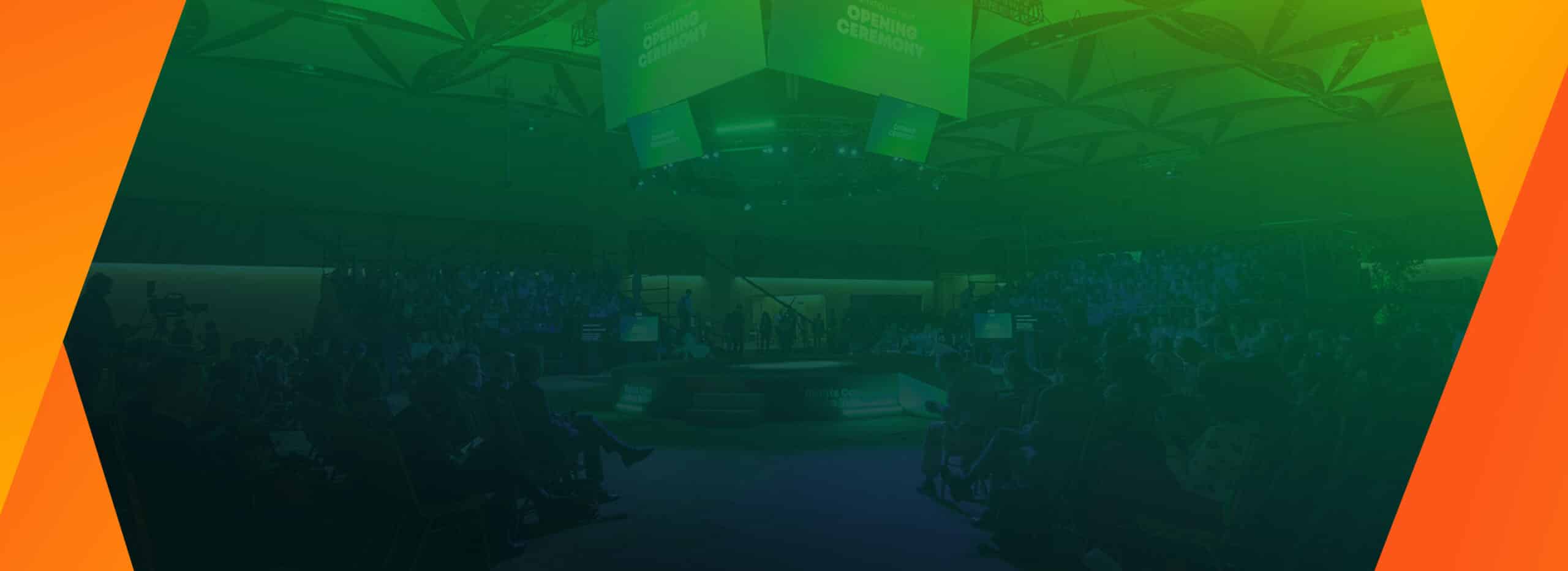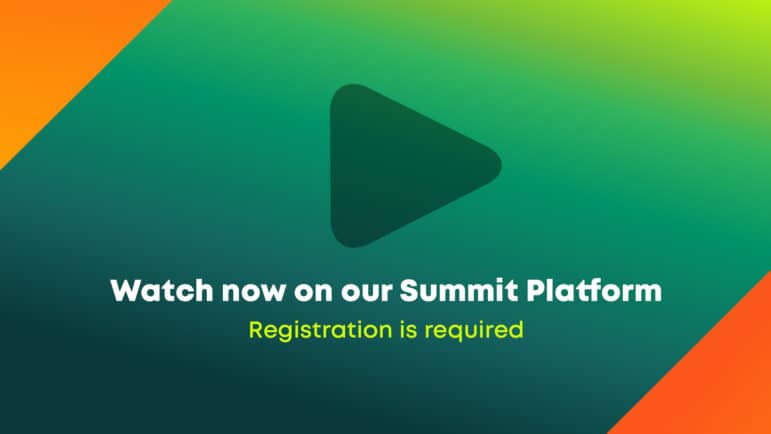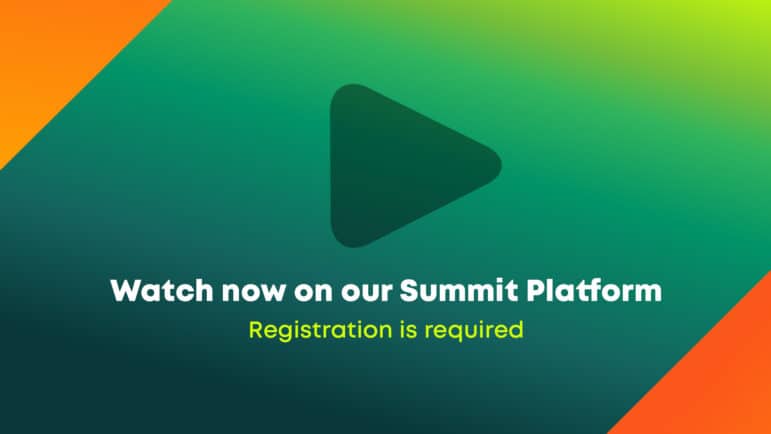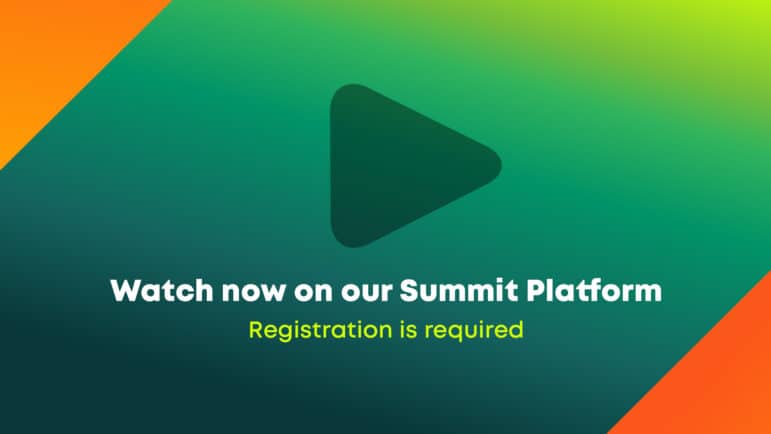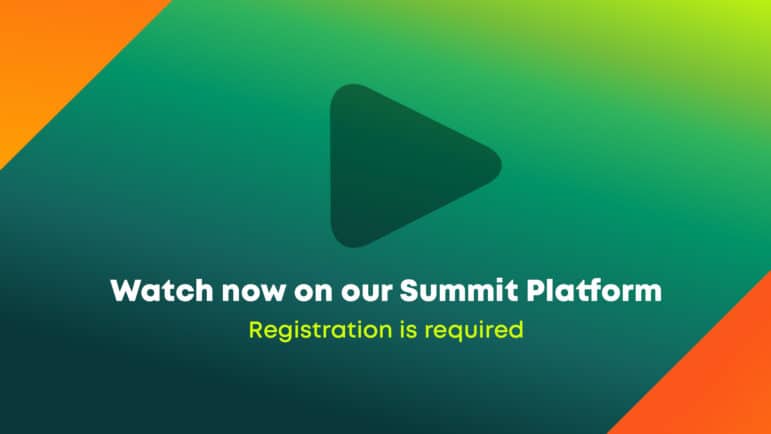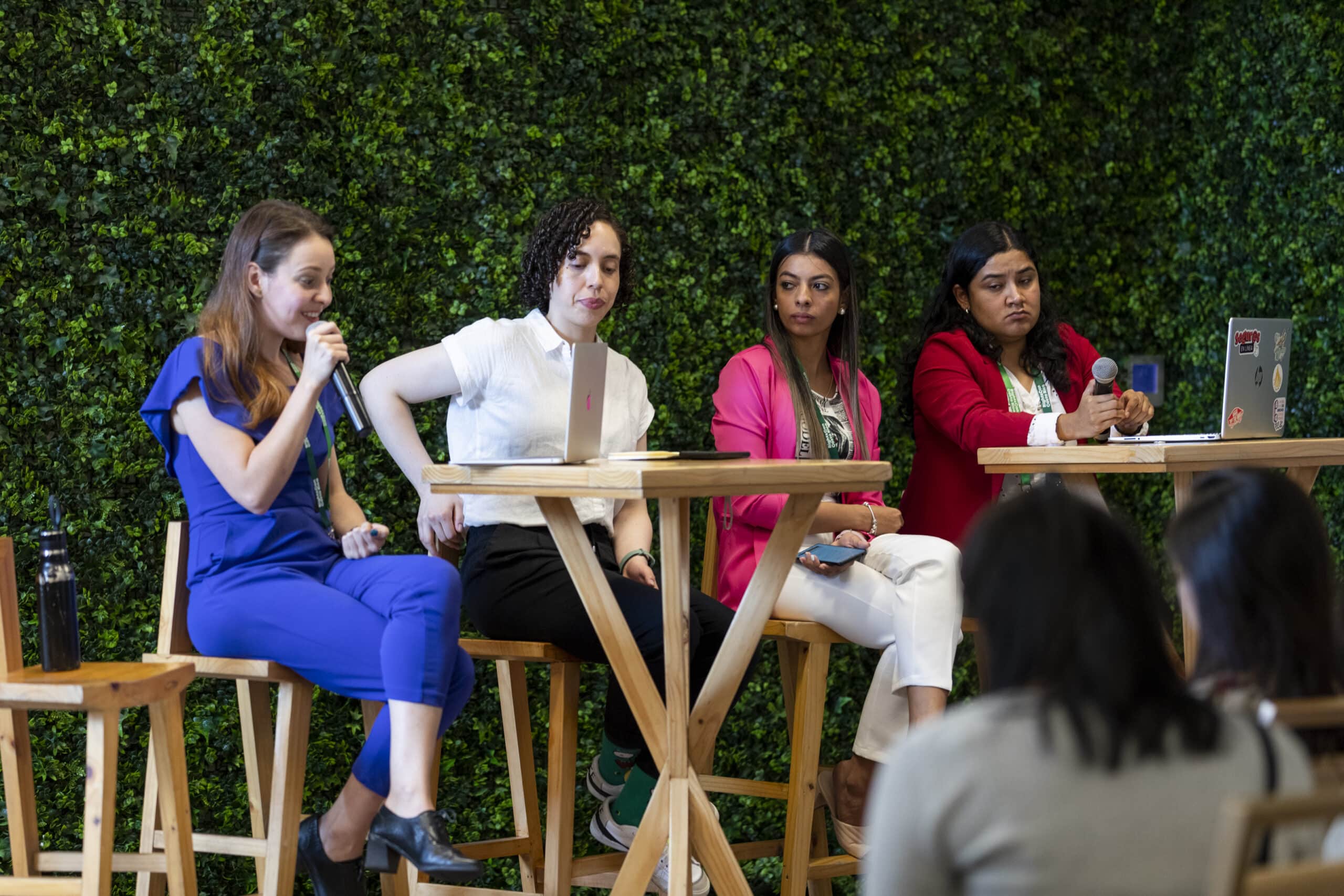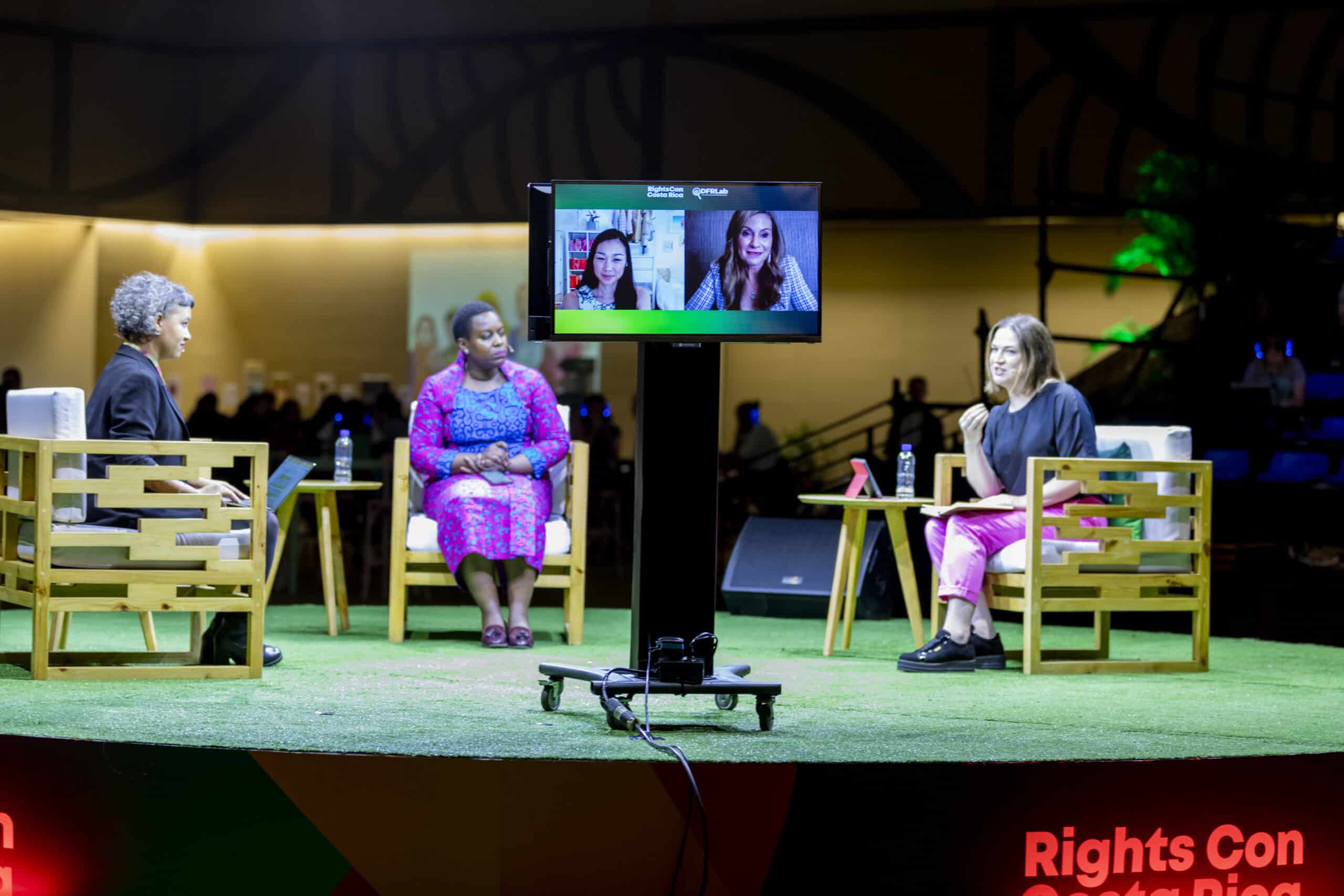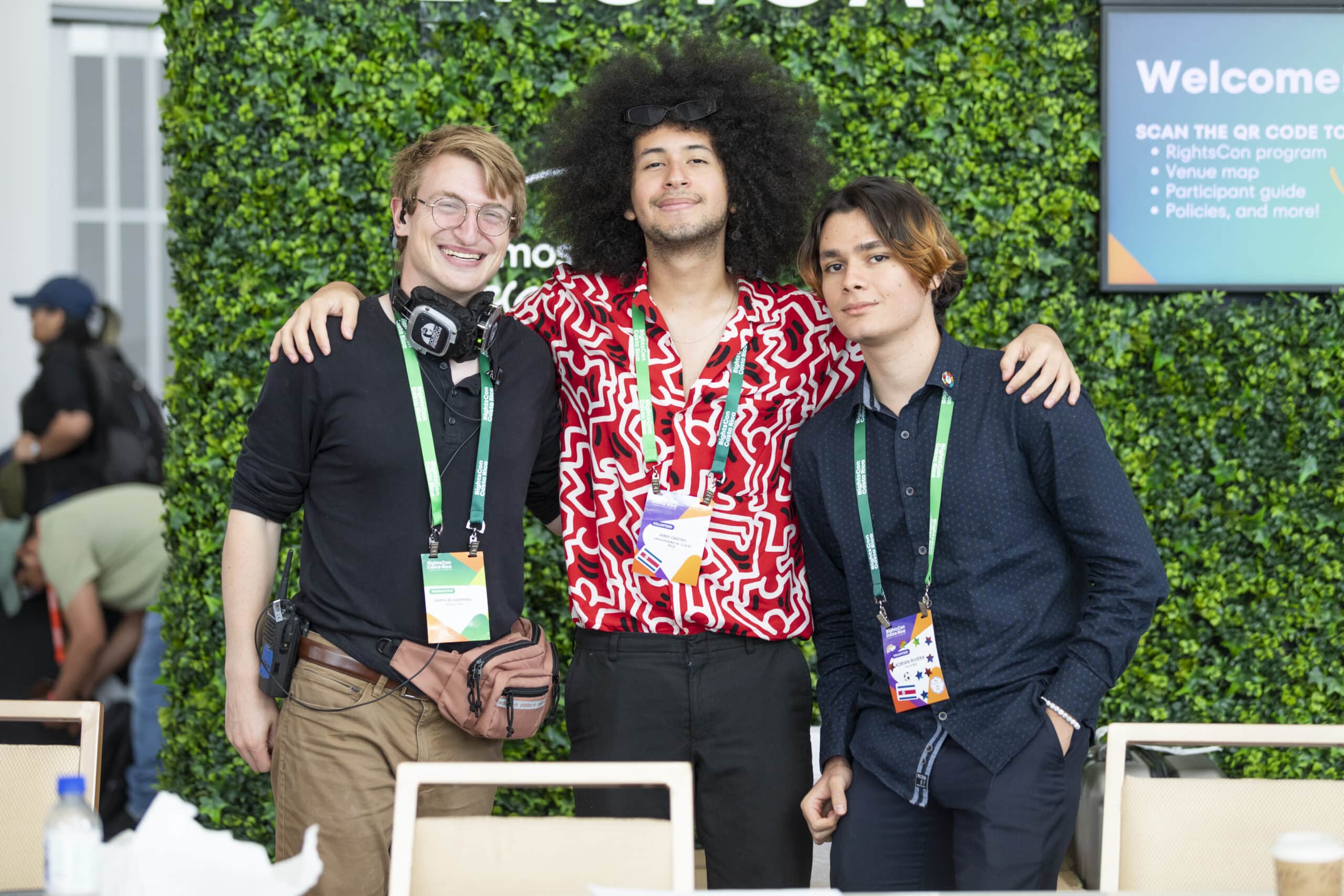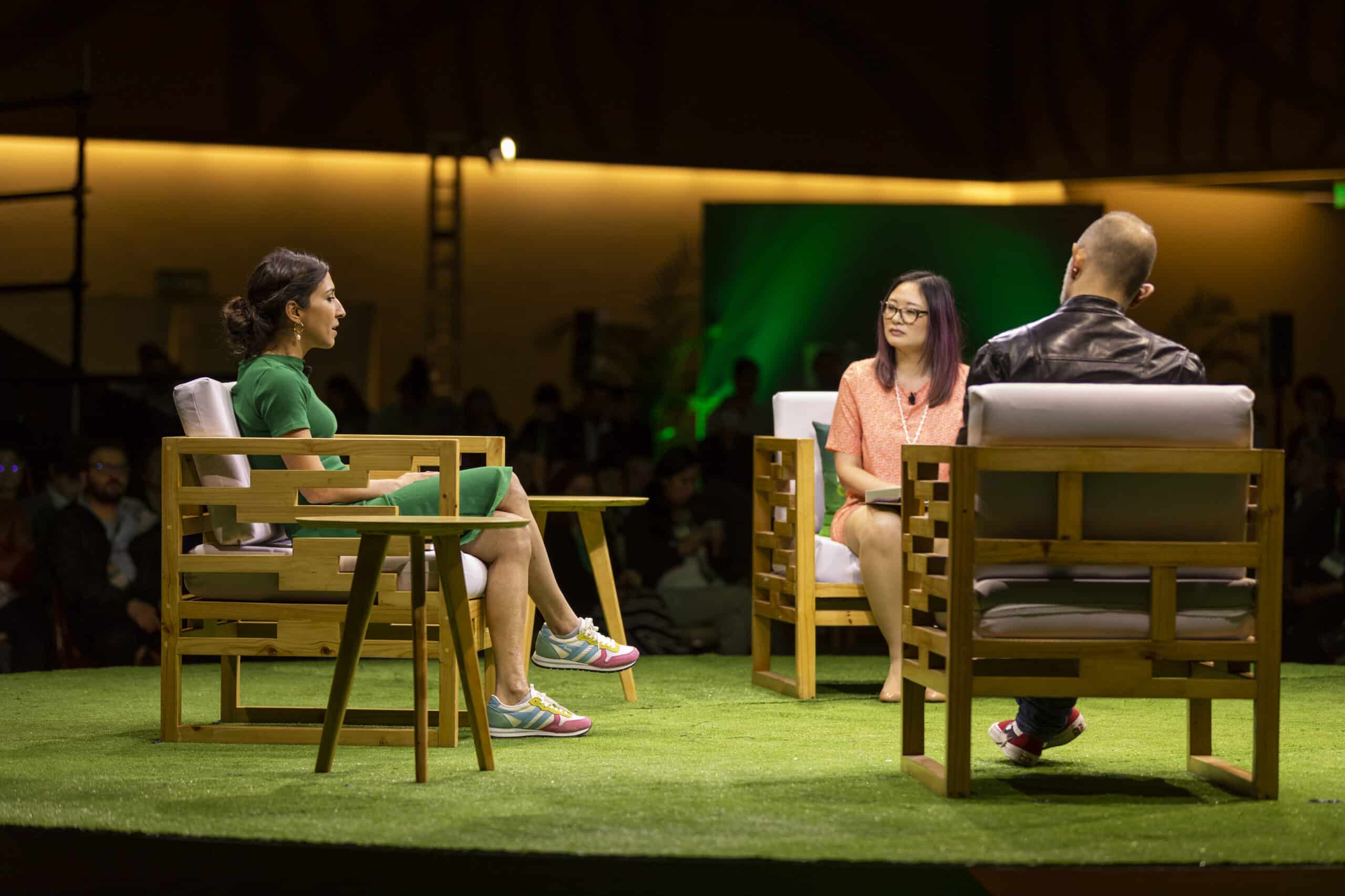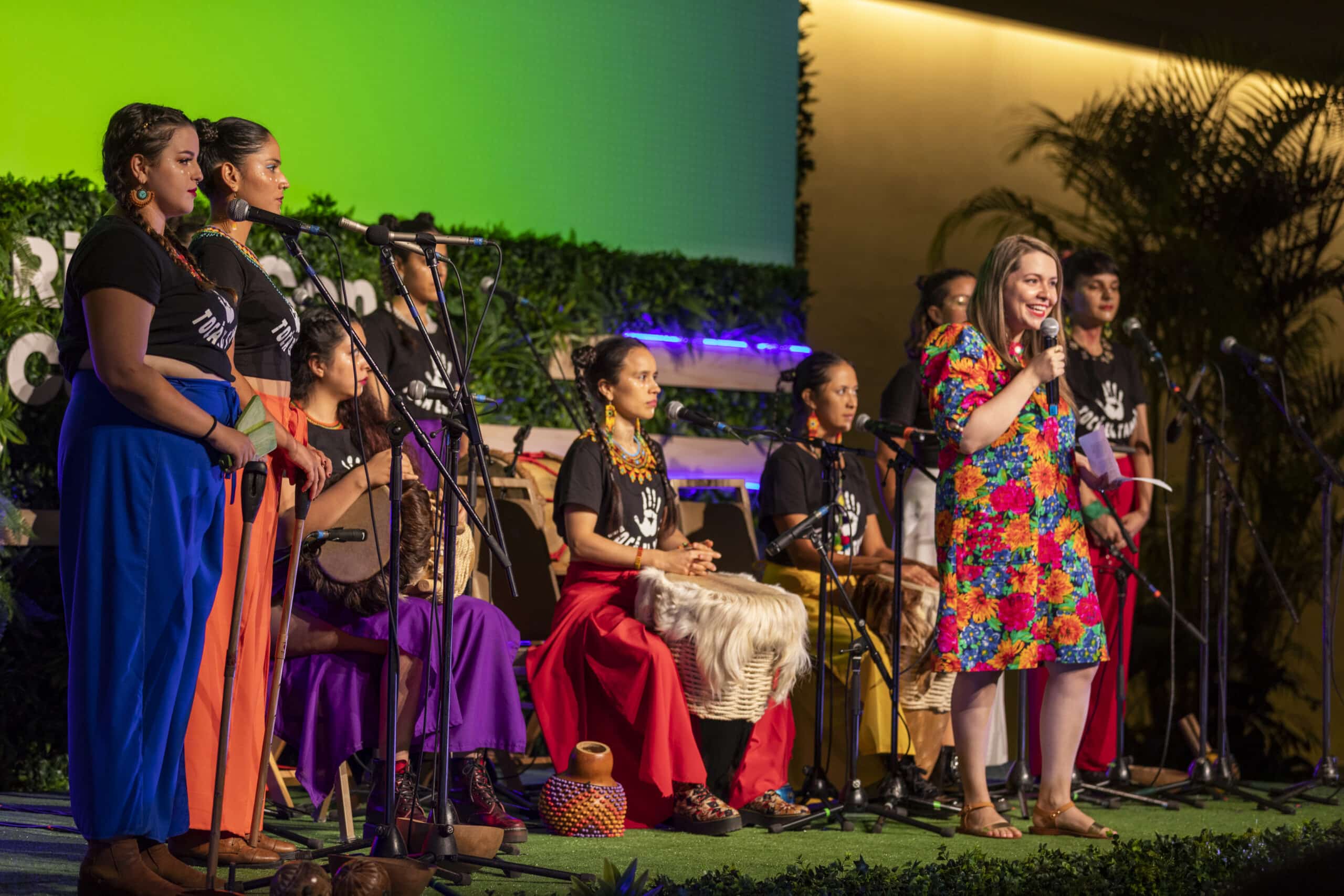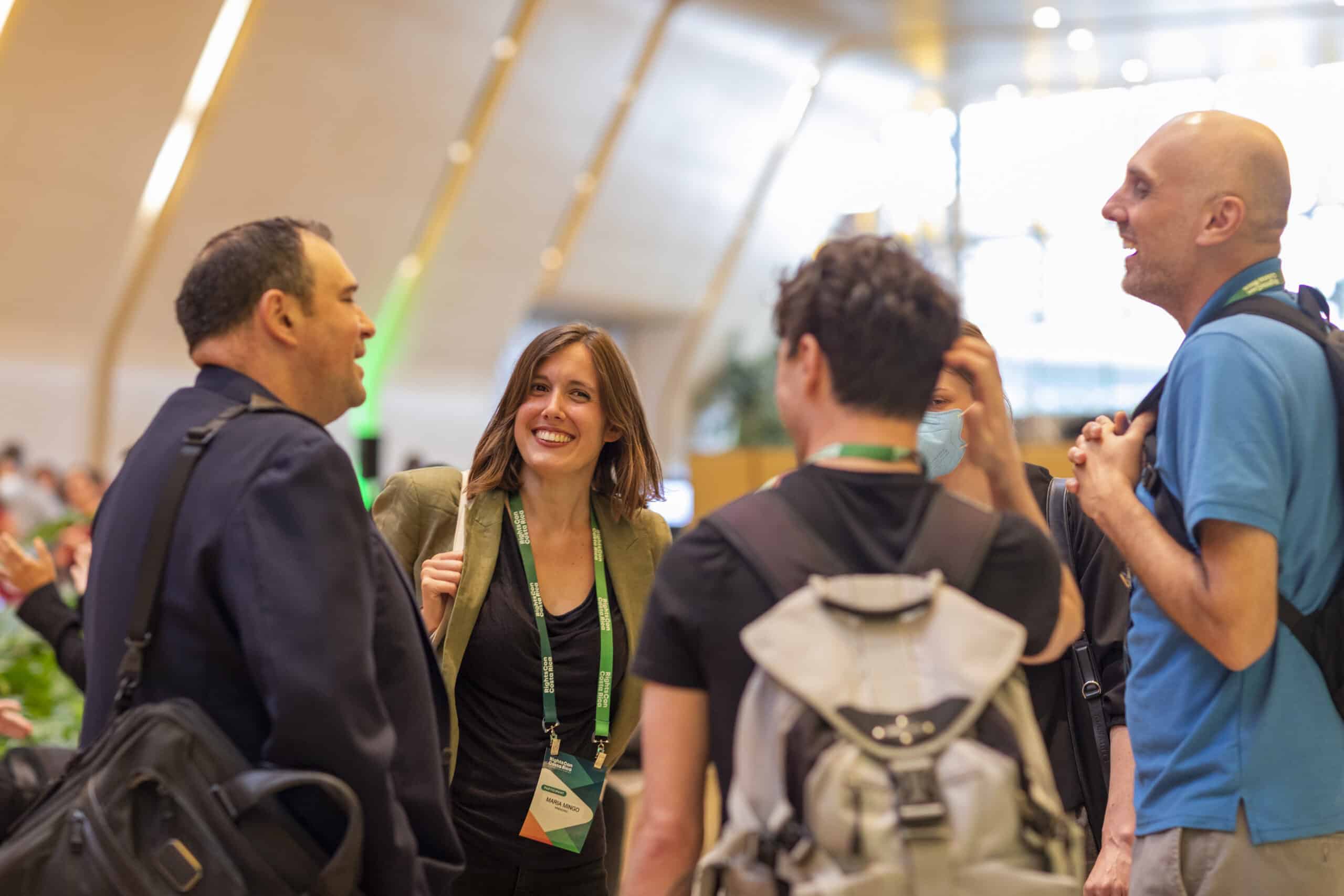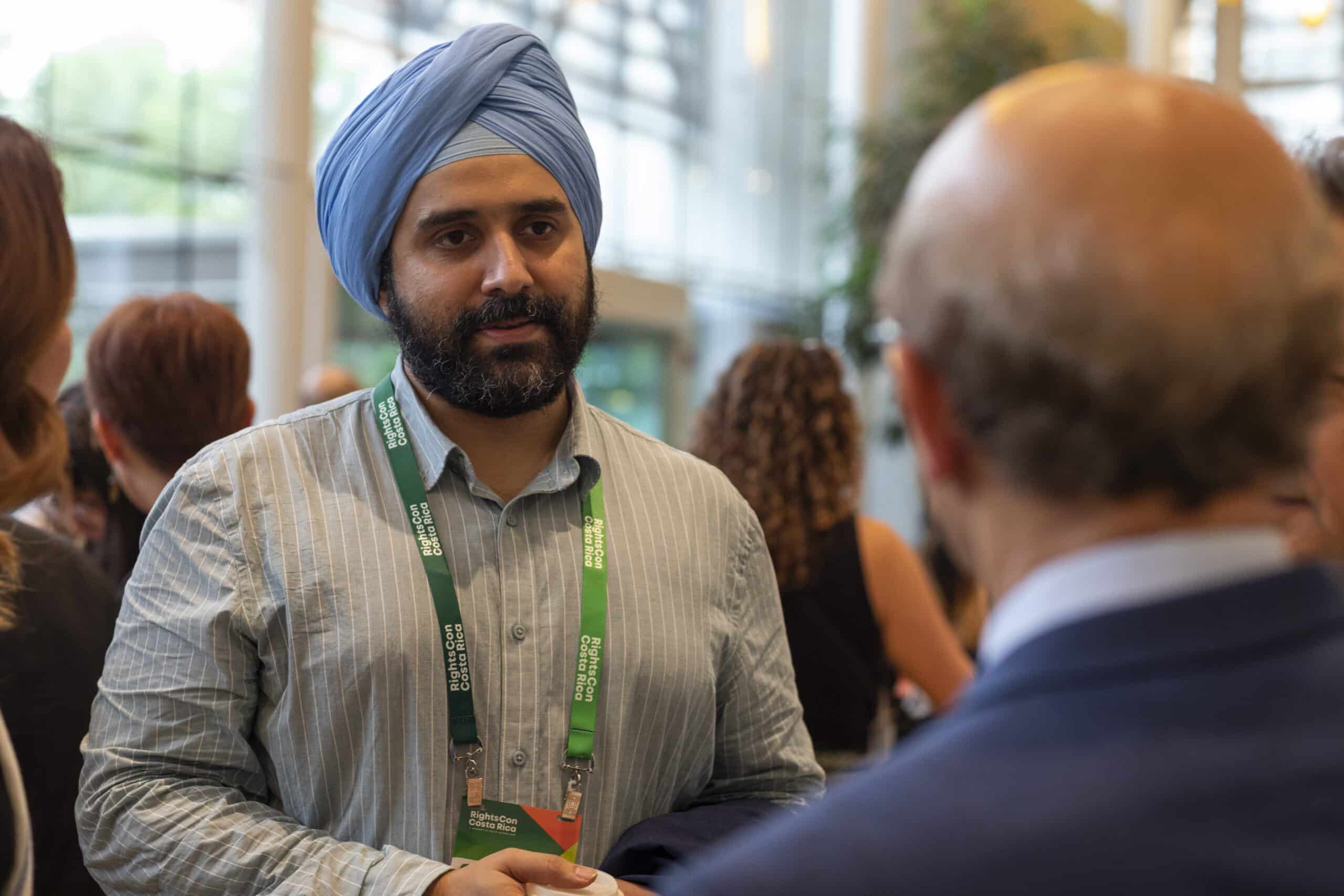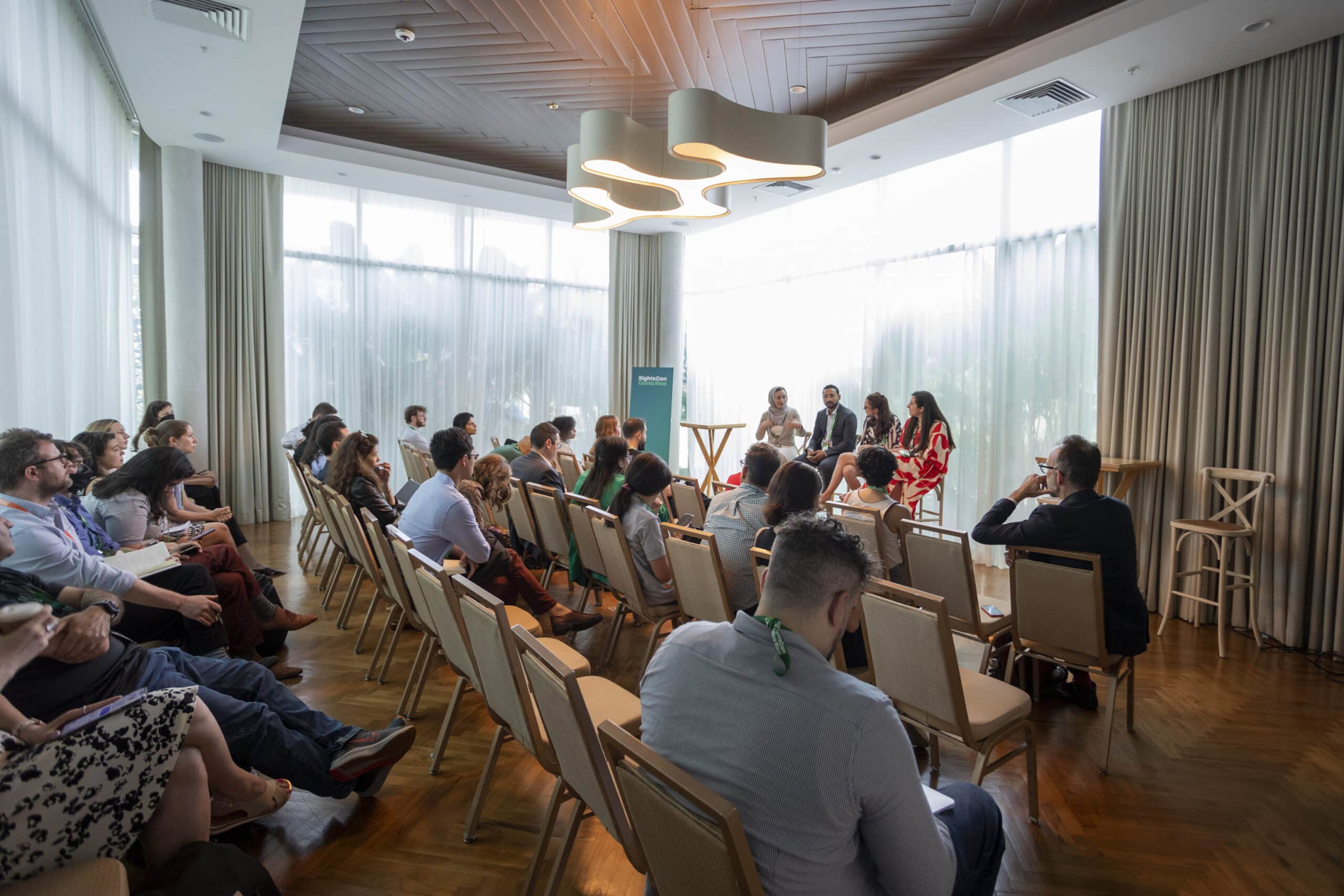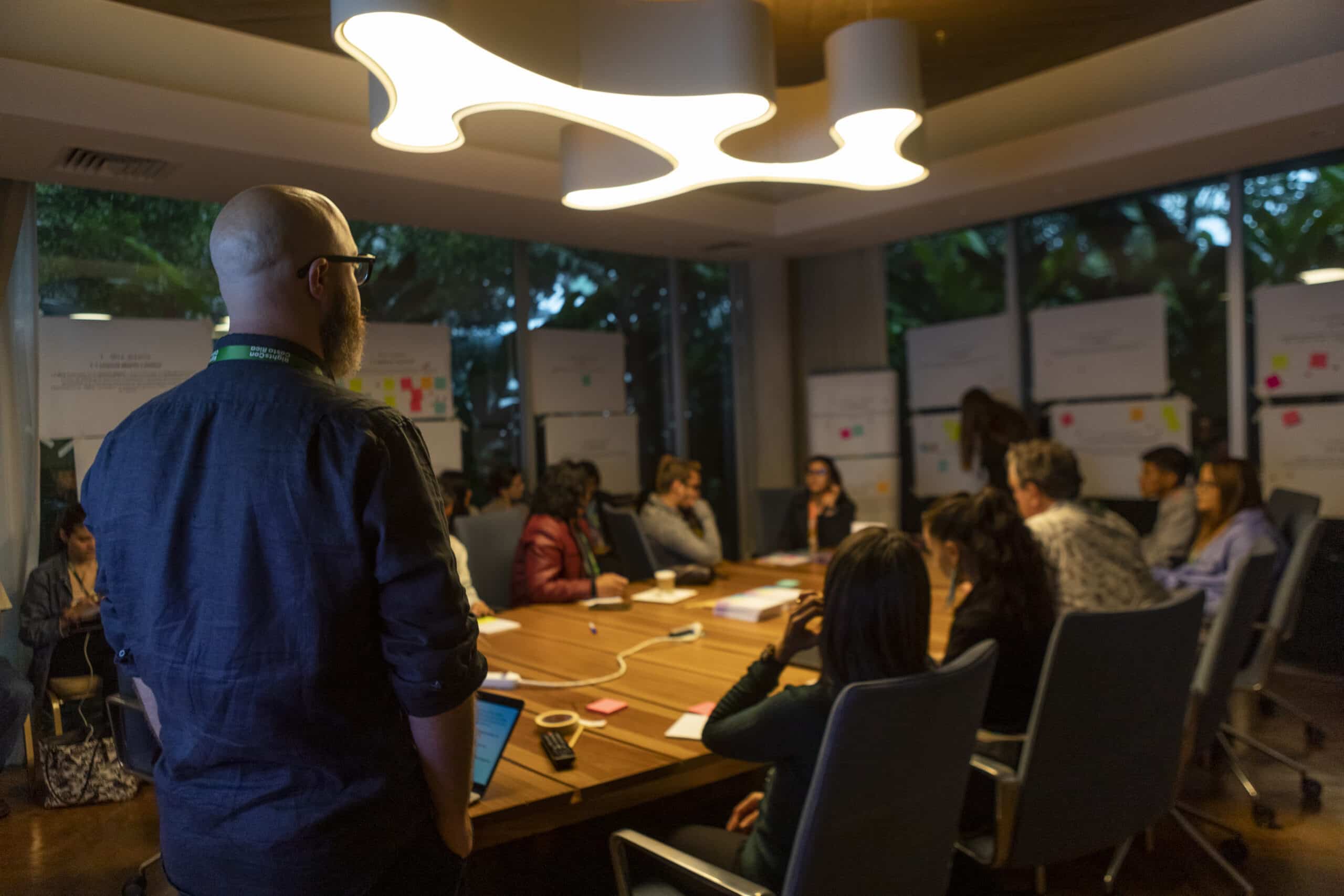Part 1:
The RightsCon Community
RightsCon is built for and by a community of business leaders, activists, technologists, policymakers, journalists, philanthropists, researchers, and artists from around the world who are working toward a rights-respecting future. We are thankful for and proud of our community, who gather year after year, to brainstorm ideas, propose campaigns and coalitions, collaborate and share their important work.
We want to take a moment to celebrate how the community has evolved and the diversity and unique perspectives of the people who make our summit what it is. No matter whether you’re joining us for the first time or are a long-time veteran, our community is the soul of RightsCon. Continue reading to learn more about the communities that made RightsCon Costa Rica possible.

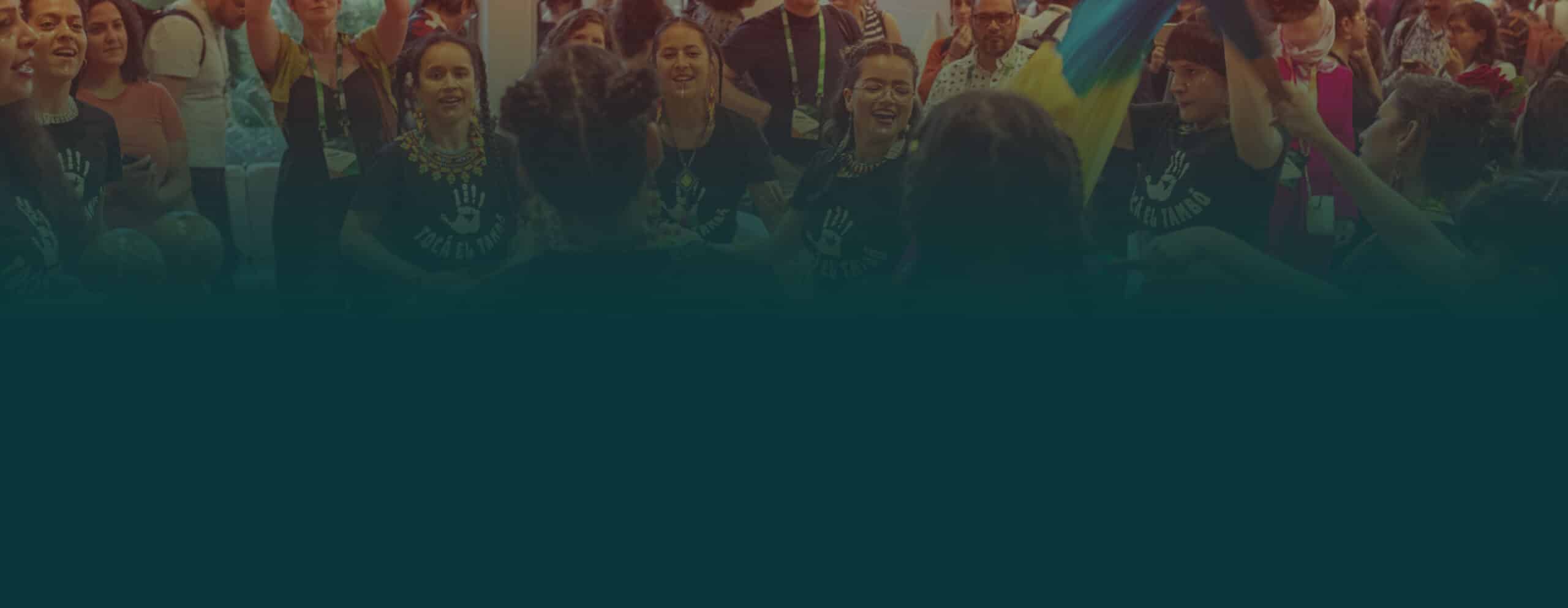
The largest RightsCon to date
8,332
participants
(2,871 in-person,
5,466 online)
638
sessions
(+78 from 2022)
689
organizations
(a new record!)
174
countries represented
(+12 from 2022)
On the program:
RightsCon Costa Rica was our largest summit to date, in number of sessions, hours of programming, and in-person participants. While we want to celebrate the growth of the RightsCon program, counting 19 program tracks and countless topics this year, we also are aware that a majority of you, (65.8% of our survey participants), found the program too big to navigate. We are working to understand the needs of our community and to develop a leaner and more sustainable program, combined with spaces for you to connect informally for RightsCon 2025.
On the RightsCon hybrid model:
RightsCon Costa Rica was our first-ever hybrid summit, following three years of convening online. We are delighted to see our growing online community engage with our in-person participants and you felt the same! 76.5% of participants shared that they hoped to keep participating in hybrid mode, and so we will be tailoring our hybrid convening model to meet the needs of our community for RightsCon 2025 and beyond.
A global community
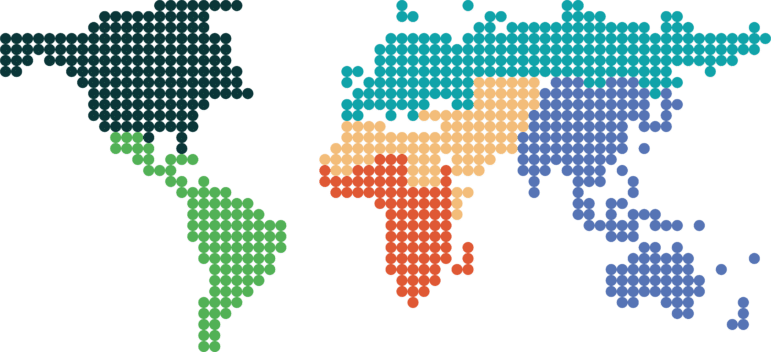
Number of participants per region

1036
Africa

856
Asia Pacific

2023
Europe

1863
Latin America and the Caribbean

337
Middle East and North Africa

2220
North America
RightsCon is proud to be a global event. Over the years, we’ve created initiatives like the Community Support Fund, which has included connectivity and travel funding, and an accessible ticket policy to ensure the cost of the event is never a barrier to joining us. We look forward to continuing to expand our support and improving access to our summit, while remaining aware of the challenges we face as an NGO with limited resources. We believe there’s still a long way to go to build an accessible, diverse, and inclusive summit, and so we want to share how far we’ve come and where we stand now.
The Global Majority
The Global Majority leads the top countries represented at RightsCon Costa Rica at 52% – joining us from near and far, including nearby Latin American and Caribbean countries as well as India, Uganda, Kenya, and Nigeria.
Latin America on the rise
Latin America and the Caribbean represented 3 of the top 5 countries at our in-person gathering. Our host country Costa Rica (#2), Mexico (#4) and Brazil (#5) helped bring crucial perspectives from the region. ¡Vamos!
Community Support Fund
At RightsCon Costa Rica, the Community Support Fund was able to provide 86 participants with a total of $126,083 in funds for travel, accommodation, internet access, and translation costs.
On Asia Pacific:
We are proud of the LAC communities that joined us in Costa Rica, and will take our lessons learned to RightsCon 2025, to not only bring RightsCon to Asia but to bring Asia to RightsCon. From sharing the challenges to digital rights in the region, to highlighting the diverse organizations doing the work to protect and extend them, you can expect to hear crucial perspectives from the region.
On underrepresented countries:
Each year, RightsCon welcomes session organizers from countries previously unrepresented at the summit, by proactively working to invite voices who are often left out of digital rights spaces. For RightsCon 2025, in particular, we will work closely with our Asia Pacific partners to identify regional groups and communities that would benefit from our global platform.
On Africa:
Participation from the African region has seen the greatest growth over the past three years (from 7% of all registered participants in 2020, to 12% this year), which we aim to sustain at future convenings. With our intention to bring RightsCon to Africa in 2026, we want to make sure to build the summit experience together with our communities in the region, consulting them on key operational and programmatic decisions.
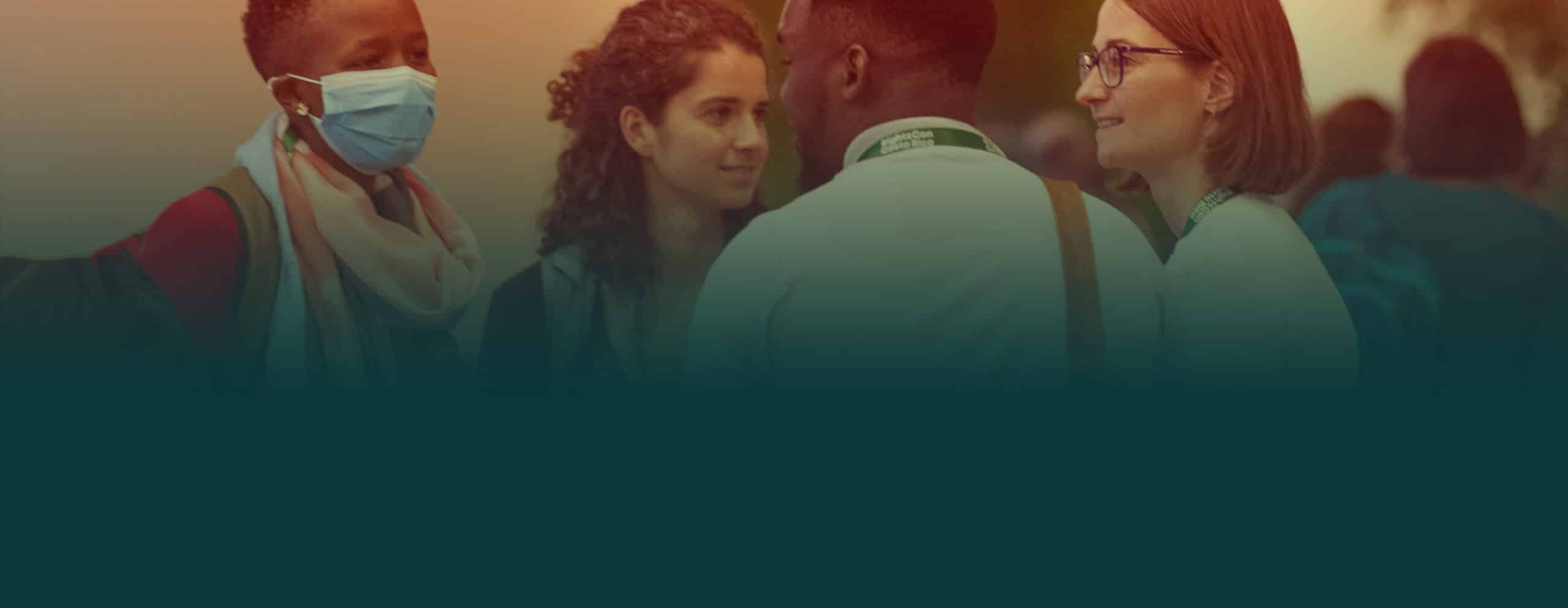
Diversity matters
RightsCon strives to be a safer space for groups that are often underrepresented in convenings globally. We continue to work on bringing together these communities and ensuring their equitable participation, for instance, by having a “no manel” (all-men panel) policy in sessions, and having a Program Committee which represents diverse perspectives, genders, and regions. While we know that ensuring inclusivity requires continuous work, we’re here to share the progress we’ve made over the past years.
Gender
This year, a record 57% of participants identified as women, marking the fifth year in a row that the majority of participants identify as such. We also welcomed 7% of participants identifying as non-binary, bigender, agender or genderfluid.
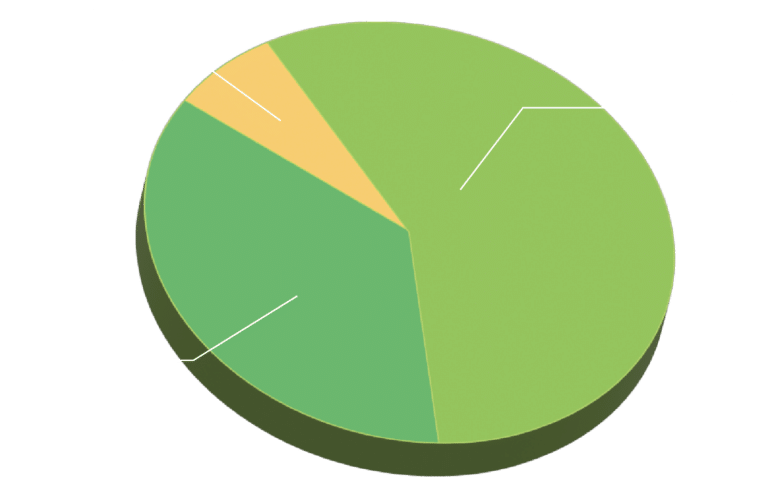
57.4%
Women
35.5%
Men
7,1%
Non-binary and other gender diverse people
On gender diversity:
Women have continued to make up the majority of participants at RightsCon, whether we convene online and/or in-person, and this year was no exception. We’re also proud to see a consistent participation of gender-diverse participants, and expect to see this trend continue in all RightsCon spaces.
Participant background
The RightsCon community comes from all walks of life, from human rights defenders on the frontlines, to government leaders, academics, and private sector representatives. In Costa Rica, we saw a notable increase in participation from civil society (50.6% vs 45% in 2022) and government (5% vs 4% in 2022).
50.6%
Civil Society
12.3%
Academia
8.8%
Private Sector
7.9%
Other
5.6%
Media
5.1%
Government
3.6%
Philanthropic sector
3.1%
Intergovernmental institutions
3.1%
Creative
On participant background:
RightsCon is a space for dialogue. While our summit continues to be civil society-led, we are thrilled to see a growth in participation from the private sector, the media, as well as governments. We hope to see increased participation from creatives, philanthropic organizations, and smaller regional organizations at RightsCon 2025 and beyond, to encourage truly multi-stakeholder conversations.
Part 2:
Outcomes & Highlights
RightsCon is a space for our community to collectively discuss, learn, and take action for change. At RightsCon Costa Rica, coalitions were formed, campaigns and statements were launched, and media coverage buzzed around the summit. Many of the outcomes we’re highlighting today are the result of years of work, some of them going back to previous editions of the summit!
In the second part of the RightsCon Costa Rica Outcomes Report, we’ll be sharing key achievements and highlights as we celebrate the steps our community took to defend and extend digital rights worldwide.


RightsCon Costa Rica program at a glance
Top 3 categories
- Online hate and violence
- Tactics and contexts for activists
- Digital security for communities
Top 3 intersecting themes
- Gender justice
- Environment
- Health
* Access to session recordings on the RightsCon platform are restricted to those who registered for RightsCon Costa Rica
Coalitions formed
RightsCon is a space for connection. With activists, artists, business leaders, creatives, journalists, philanthropists, policymakers, researchers, and technologists from around the world, partnerships are formed in both the formal programmatic spaces as well as the informal ‘hallway’ exchanges and meetups. We’re excited to introduce to you just a few of the coalitions that launched this year at the summit!
#MigrarSinVigilancia
In response to the extensive surveillance of migrants and other people on the move – threatening their privacy, integrity, and dignity – over 20 organizations came together to create the #MigrarSinVigilancia LATAM Coalition. The Coalition’s goal is to defend the human rights of people on the move, by protecting their personal data. Through activities including research, campaigns, policy advocacy, lobbying efforts, the Coalition aims to protect their right to migrate and seek asylum, ensure family unity, as well as uphold due process and consent.
Critical Digital Education for All
At the Community Village, the JAAKLAC Initiative collaborated with over 12 youth and civil society organizations to launch the Critical Digital Education for All campaign. The campaign aims to increase awareness and stimulate discussions on the right to quality education in the digital age. The initiative includes a collection of podcasts, blogs, and social media posts that explore various regional contexts and experiences, aiming to bring forth an educational system that fosters critical thinking, upholds human rights, and encourages participation in digital societies.
Global Coalition for Tech Justice
In their RightsCon session, “2024 global year of democracy: stopping Big Tech from breaking elections worldwide”, Digital Action launched the newly formed “Global Coalition for Tech Justice” to help protect elections from the harms facilitated by Big Tech. On September 15, the Coalition launched the #YearofDemocracy campaign, with the objective of ensuring Big Tech companies like Meta/Facebook, Google/YouTube, Twitter/X, TikTok, and others play their role in protecting elections, citizens’ rights, and freedoms across the world.
Empowering the Digital Citizen
The satellite event, “Empowering the Digital Citizen“, organized by the Misinformation Village, hosted 8 discussions and featured over 20 speakers. 6 key recommendations emerged from the all-day event at RightsCon:
- Develop common understanding and technology to combat misinformation;
- Establish collaborative partnerships between stakeholders;
- Implement comprehensive strategies against online gender-based violence;
- Promote multi-stakeholder engagement in internet governance.

Statements & Reports
RightsCon is an outcomes-oriented summit, and we believe in defining challenges and working together to take tangible steps toward protecting and expanding our human rights in the digital age. Take a look at some of the commitments and statements that were shared at RightsCon Costa Rica below.
New and emerging technologies need urgent oversight and robust transparency
In line with what has become a yearly RightsCon tradition since 2019, United Nations experts released a statement at the summit – this time, calling for “greater transparency, oversight, and regulation to address the negative impacts of new and emerging digital tools and online spaces on human rights.”
At RightsCon, messaging app CEOs commit to protecting End-to-End Encryption (E2EE)
All of us from around the world use messagings apps to work and communicate with friends and family. For this reason, it is essential that our privacy is guaranteed. At RightsCon Costa Rica, CEOs from messaging apps WhatsApp, Signal, Element, and OpenMLS affirmed their commitment to protecting end-to-end encryption from regulatory threats.
Costa Rica: all states must immediately ban highly invasive spyware
In the context of RightsCon, Amnesty International released a statement calling on all states to “immediately ban highly invasive spyware.” According to Amnesty, highly invasive spyware is software with functionality that cannot be limited or independently audited (Pegasus, for example).
Protecting women and LGBTQ+ individuals in the Global South from online hate
At RightsCon Costa Rica, the Centre for International Governance Innovation released the Supporting Safer Digital Spaces report, based on a survey of 18,000 women’s and LGBTQ+ peoples’ online experiences from 18 countries in the Global South. The document reveals that almost 25% of those who have experienced online harm believed their identity to be the main cause of these experiences. The report is the first statistically meaningful study of its kind.
Developing a framework for gender-responsive cybersecurity policy
The Association for Progressive Communications (APC) launched its framework and presented its Assessment Tool at RightsCon Costa Rica. In their session, “A framework for developing gender-responsive cybersecurity policy”, the organizers discussed what a gender perspective in cybersecurity means, as well as the challenges they face when applying it.
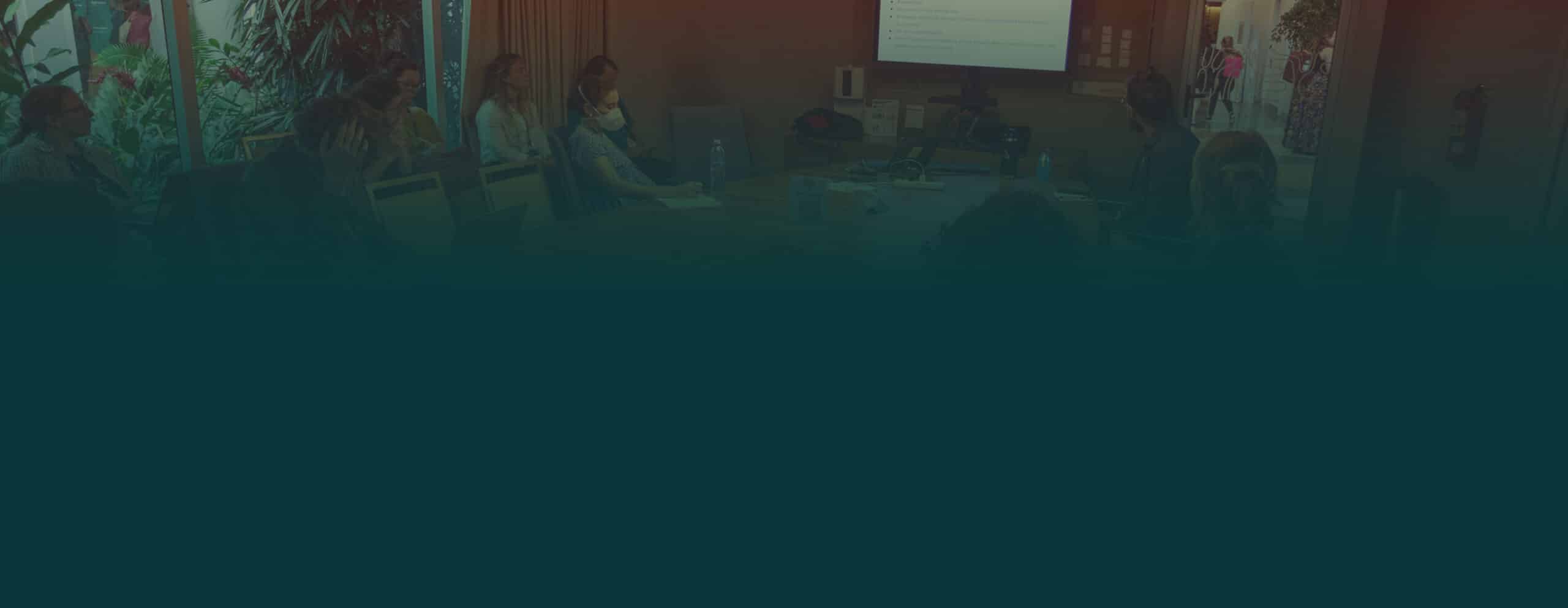
Solve my Problem
Solve My Problem (SMP) is a multi-session, year-round format centered around developing a strategy to resolve a defined problem or challenge at the intersection of technology and human rights. Since 2019, SMP has served as an “accelerator” for cross-sector collaboration and led to the creation of important coalitions and campaigns, such as the #WhyID campaign, the #BanBS campaign, and a spyware victims’ handbook, as well as resources, toolkits, and other concrete outcomes. While some SMP sessions may take place at RightsCon, sessions will continue throughout the year for continued multi-stakeholder collaboration.
This year’s Solve My Problem sessions provided a platform for the RightsCon community to work together to resolve a defined issue in topics ranging from account protection for human right defenders under arrest, digital ID, internet shutdowns, and digital authoritarianism.
At RightsCon Costa Rica, we hosted a total of 4 Solve My Problem sessions.
Internet shutdowns in Africa
Hosted by the Center for Media Studies & Peacebuilding and Media Institute of Southern Africa Zimbabwe
Problem statement:
As countries across Africa hold elections in 2023, citizens must remain vigilant and prepare to respond to internet disruptions that can challenge electoral transparency, integrity, and accountability. In this context, CEMESP, Misa Zimbabwe, and the #KeepItOn team at Access Now designed a series of trainings to raise awareness among local actors on how internet shutdowns undermine elections.
Outcomes:
We hosted four training sessions with 20+ civil society organizations from Liberia and Zimbabwe. In collaboration with the #KeepItOn Coalition, the organizations signed a letter to urge the President of the Republic of Liberia to guarantee open and secure internet access during the elections.
Emergency account protection for arrested human rights defenders – can we do better?
Hosted by Access Now
Problem statement:
Civil society actors are at risk of having their personal information compromised due to the unlawful seizure of their devices. Rapid responders from civil society continue to face challenges despite their collaboration with platforms to address these incidents.
Outcomes:
The stakeholders involved in this SMP generated a set of recommendations in three key solution areas: 1) Improving escalation channels with platforms 2) Community-driven solutions 3) Collaborative solutions with service providers & platforms.
How to research digital ID systems with a human rights lens
Hosted by Data Privacy Brasil and Privacy International
Problem statement:
Comprehensive research on digital identity systems and their impact on vulnerable communities is crucial in order to spotlight the violations these programs cause. Conducting such research is complex, requiring specific methodologies and ongoing dialogue between digital rights organizations and advocacy for vulnerable groups. However, there is a scarcity of resources offering guidelines for investigating digital ID systems through a human rights lens.
Outcomes:
The organizers, along with other civil society organizations, drafted a collaborative resource with principles, guidelines, and recommendations on how to research digital ID with a human rights lens.
Unfreedom Monitor: from research and reporting to advocacy
Hosted by Global Voices
Problem statement:
For the past two years, Global Voices has been running the Unfreedom Monitor project in 20 countries, analyzing the growing use of digital authoritarianism. The organization has already consolidated a public dataset and launched a report with their findings. However, the current challenge lies in devising an effective advocacy strategy to disseminate the findings and engage new stakeholders.
Outcomes:
Global Voices brought together various civil society organizations with extensive experience in advocacy to gather feedback on the project, based on which they have created a draft advocacy roadmap for the report and its findings.

Session Highlights
During RightsCon Costa Rica, organizations and individuals from across the globe hosted over 600 sessions, discussing and debating issues that will shape the digital rights discourse for the coming years. While we celebrate the growth of the RightsCon program, we also want to take a moment to highlight sessions led by community members representing distinctly diverse groups. (Note: Access to session recordings on the RightsCon platform are restricted to those who registered and joined us for RightsCon Costa Rica)
Feminist and gender-based digital security
Hear from members of the feminist communities from Africa, Asia, Europe and Latin America share their initiatives and strategies in addressing gender-based violence online.
Disability rights movement
Hear from members of the disability justice movement from around the world on the challenges they currently face, and on strategies for meaningful digital inclusion.
Looking ahead
RightsCon has evolved over the years, thanks to our community which has not only grown in numbers but in its representation. While we’re proud of the progress we’ve made, we remain committed to the work ahead to further diversify our community and to provide support for equitable access to RightsCon spaces.
We also recognize that much of the work that begins at RightsCon takes months, if not years, to come to fruition. Many of the launches and coalitions that were formed at RightsCon Costa Rica started ahead of the event, including at previous iterations of the summit. We don’t doubt that we’ll be seeing outcomes from work that began this June for many years to come, and can’t wait to share them with you in the future!
Part 3:
Learnings & Looking Ahead
For this edition of the Outcomes Report, we have embraced a distinct approach from previous years, examining the summit comprehensively and dedicating time to reflect on both the accomplishments and the challenges we faced.
In this final part, we delve into the insights gained from RightsCon Costa Rica and the subsequent consultation calls we hosted, to detail some of the steps we are taking to improve different aspects of the summit, encompassing the program, production, and participant experience for RightsCon 2025, and future iterations.


Traveling to RightsCon
It’s in the RightsCon mission to bring together global voices for insightful debates, meaningful connections, and to collaborate on issues at the intersection of human rights and technology. During RightsCon Costa Rica, the first in-person gathering since RightsCon Tunis in 2019, the community encountered several challenges traveling to San José, as highlighted in our open letter.
These challenges were rooted in larger, systemic and discriminatory structures affecting passport holders from Global Majority countries, especially indigenous people and people of color. As conveners, it’s our responsibility to anticipate and work to mitigate the barriers participants face as they move through all stages of the participation process, from deciding to join us (be it in-person or online), ensuring connectivity, providing guidance on obtaining visas, and traveling to and from RightsCon.
Looking ahead, we are committed to allocating the necessary resources to prioritize equitable access to the spaces where we convene. In this initial reflection phase, we are working on redesigning our Community Support model, balancing broadening our support to be inclusive of the full participant experience – financial support, obtaining visas, and more – with the realities of our budget and our capacity. Our priority is to provide more and better support to the community.
You can read the report from our consultation calls on mitigating barriers to travel on our blog.
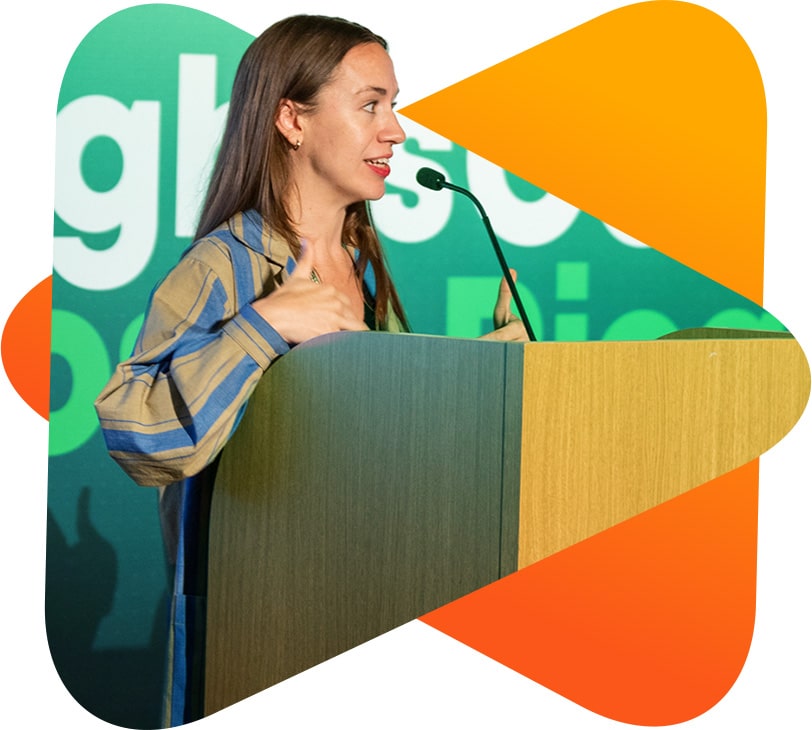
RightsCon size and scale
Our first hybrid event set records for the number of sessions and proposals received, which is a growth trajectory we’ve experienced since RightsCon started in 2011. While we appreciate the increasing interest from the community in hosting sessions and attending RightsCon, we also recognize the challenges that come with an ever-expanding event model.
For Access Now, the increasing cost, production complexity, and intensive curation process of a hybrid program strains our small team, our partners, and our volunteers. We’ve also heard from participants that a program bursting at the seams leaves little room for informal but essential networking. For RightsCon 2025, our focus is on delivering a manageable program and developing a framework for sustainable growth, prioritizing the needs of our community to achieve their session outcomes over sheer numbers. Stay tuned as we communicate future changes to the RightsCon program!
You can read the report from our consultation calls on rethinking the RightsCon program on our blog.
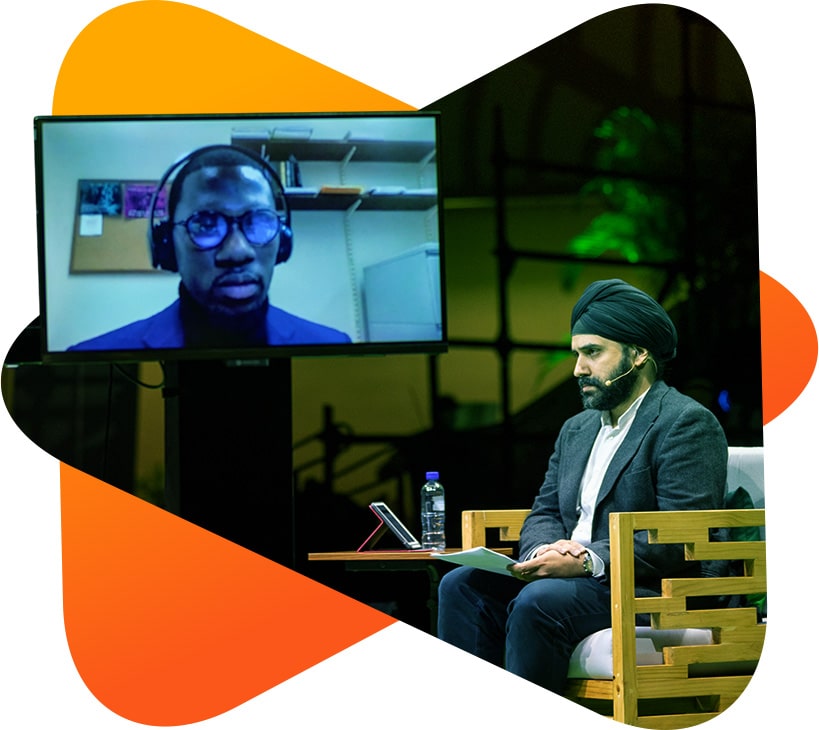
Hybrid is here to stay
Historically an in-person only summit, the return to physical gathering in Costa Rica, coupled with the sustained demand for online participation, highlighted the necessity of implementing a hybrid approach to RightsCon. This ensures that new community members who joined in the last three years can participate remotely, and session organizers can reach an even broader audience.
While the outcome of our first hybrid event received positive feedback, we recognize that there is space for improvements, particularly in better integrating the online and in-person communities. Transparently, we also faced financial and operational hurdles associated with the complexity of developing a truly hybrid event.
Looking ahead to 2025, our goal is to enhance our hybrid approach, honing in on what was most valuable to participants in Costa Rica, while strengthening synergy between the programmatic side, participant experience, and event production. We are actively developing an updated approach for a hybrid RightsCon 2025 in Taipei that we are confident will be a step forward, and we can’t wait to share the details with you in the upcoming months!
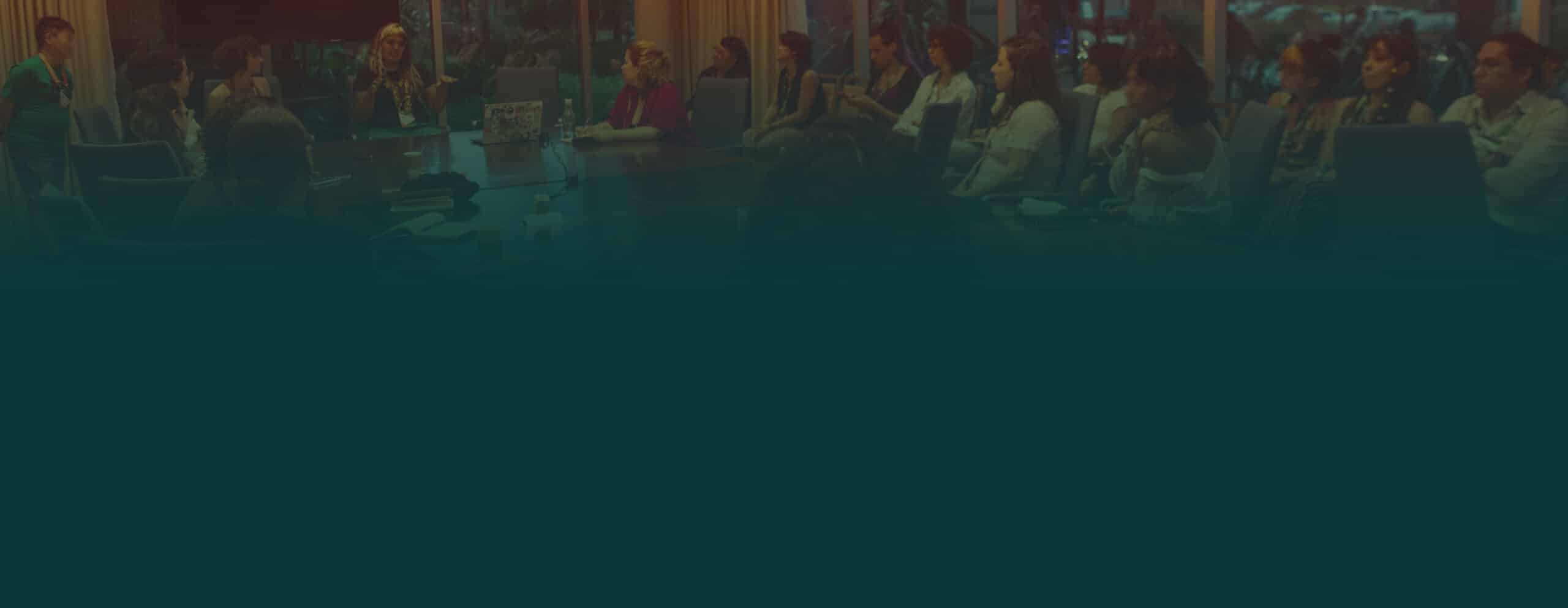
Community at the center
The active engagement, creativity, and knowledge within the RightsCon community, whether in-person or online, is truly remarkable. It’s our belief that the RightsCon community is the soul of our summit and that any path forward requires centering their perspectives and expertise. We are immensely grateful for the support, engagement, and trust demonstrated by the community, in the face of challenges in Costa Rica, but also in actively contributing to our consultation calls (more than 700 of you registered for 19 calls!).
When looking at the number of proposals we’ve received, it’s clear that a substantial part of our community chooses to engage in the summit as session organizers. While we recognize the significance and importance of presenting a session at RightsCon, cultivating a more sustainable growth model requires us to establish alternative pathways for expanding the participant experience beyond hosting a session.
As we embark on this next chapter of RightsCon, it is our commitment to place community voices at the forefront of every aspect of the event, in particular of those that are often sidelined in global convening spaces. Stay tuned as we present various initiatives in the coming months to facilitate connecting with the RightsCon team and fellow participants, fostering collaboration and progressing all of our work throughout the entire year.

What to expect for RightsCon 2025 in Taipei
RightsCon Costa Rica presented opportunities for us to test the RightsCon model by hosting our first hybrid event. Both the successes and the challenges of the summit prompted a necessary reflection of our long-term vision of what RightsCon looks like and where it goes. We’re taking a longer lead time to our next summit, set for February 2025 in Taipei, to review our processes, revisit our timelines, and explore ways to center the community’s expertise every step of the way. We’re thrilled to incorporate the invaluable feedback we received from the community to inform our planning for RightsCon 2025. We see this as a unique opportunity to bring our mission even closer to our community.
After a long-awaited return to Asia after the 2015 summit in Manila, RightsCon 2025 will serve to highlight the tireless work of Asian human rights defenders and celebrate this vast and diverse region through a tailored and localized program, alongside our regular RightsCon programming.
For RightsCon 2025, we’re actively working to enhance several areas of our work and share more details about these new initiatives as we launch them to the community throughout the year, so you can join us on the journey from consultation to redesign to implementation.
While recognizing the complexity and time required to fully reshape our initiatives, with the understanding that some of these changes may happen gradually, we are excited for the work ahead of us and look forward to continuing to be in conversation with you as our planning evolves.
Conclusion
RightsCon has evolved over the years, thanks to our community, which has not only grown in numbers but also in its diversity. While we’re proud of the progress we’ve made, we remain committed to the work ahead to further support our community and provide equitable access to RightsCon spaces.
We want to take this opportunity to express our gratitude to the incredible, diverse, driven, and passionate group of people that we call the RightsCon community. It’s our privilege to host a space for your insightful discussions and to witness a flourishing and vibrant ecosystem of human rights defenders.
Whether you’re one of the 2,500 who joined us in person, the over 5,000 who connected online, among the 700 people who took the time to sit down with us and provide feedback during our consultations, the hundreds who volunteered at RightsCon Costa Rica, or one of the thousands of participants who have joined RightsCon in the past 12 years – a massive thank you!
See you in Taipei (and online)!
Adriana, Daphne, Elan, Jiye, Igor, Luis, Nikki, Reetz, and Sarah.
Keep up to date with RightsCon
Get our newsletter for updates on tickets, speakers, and programming.
Get in touch with us at [email protected]

